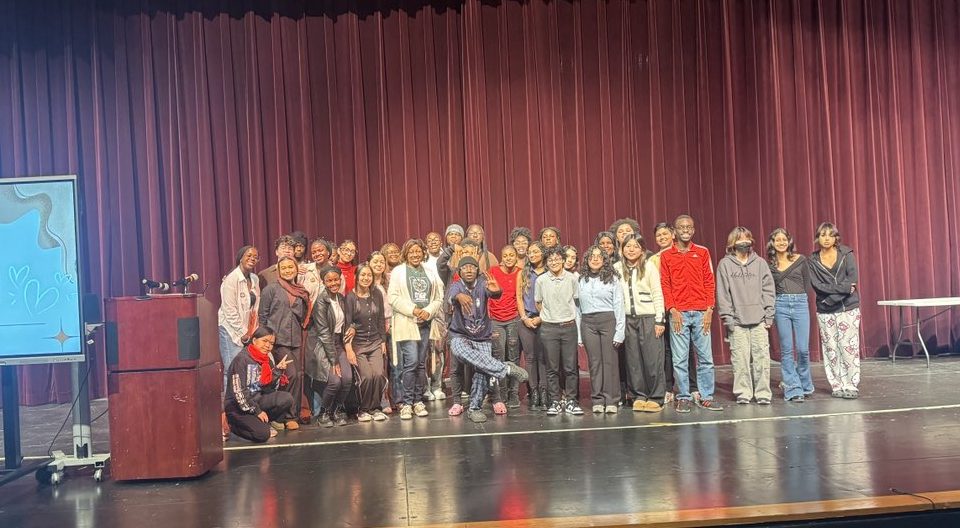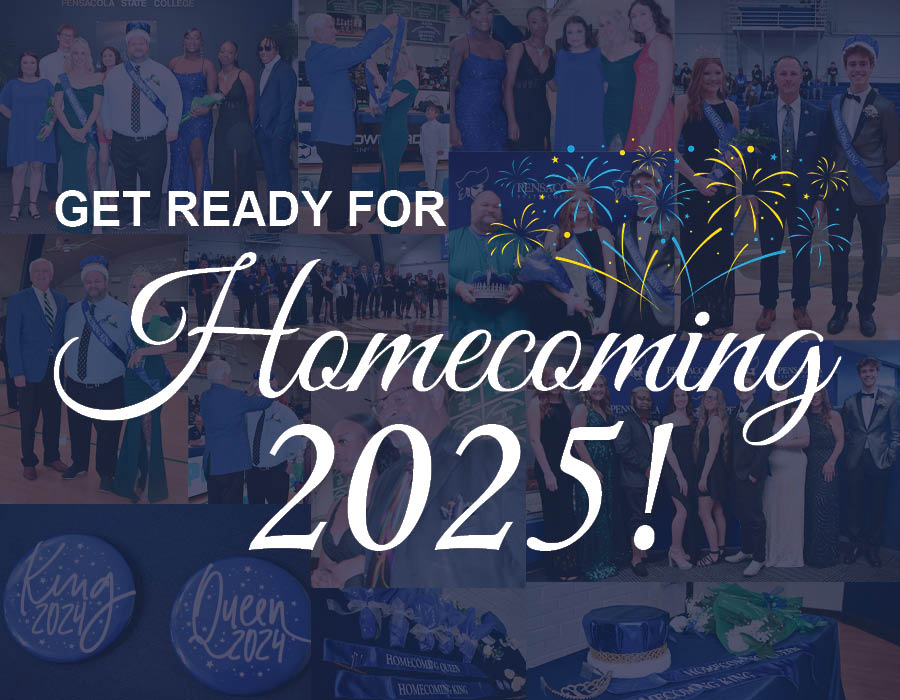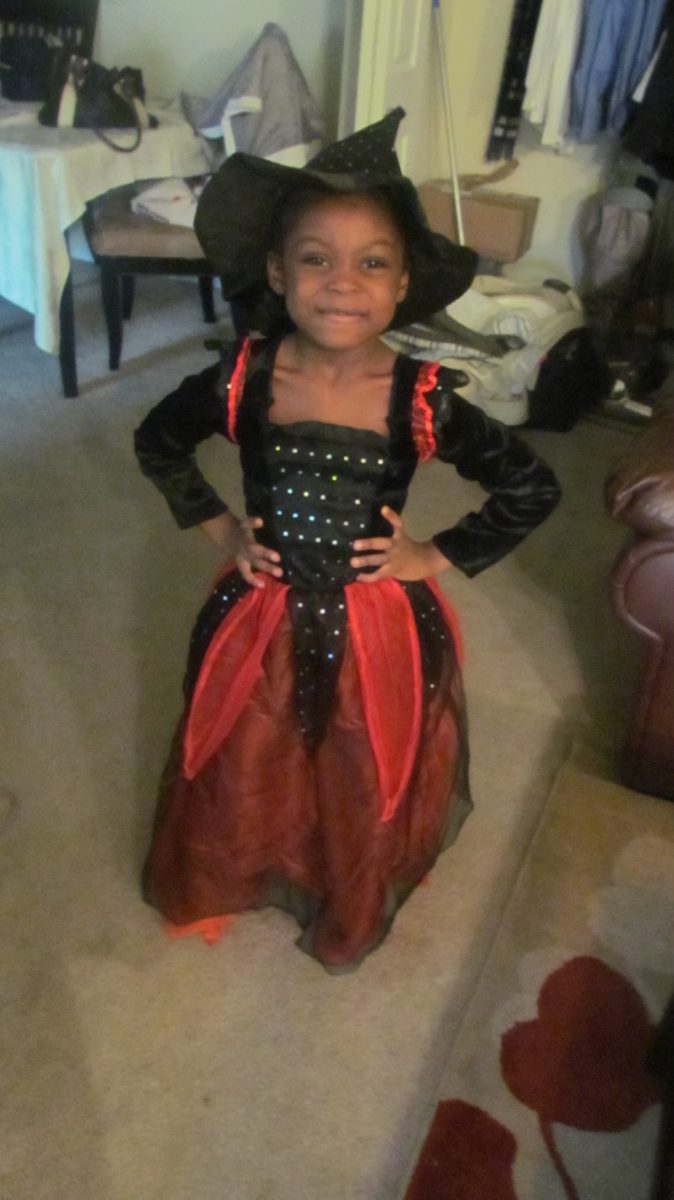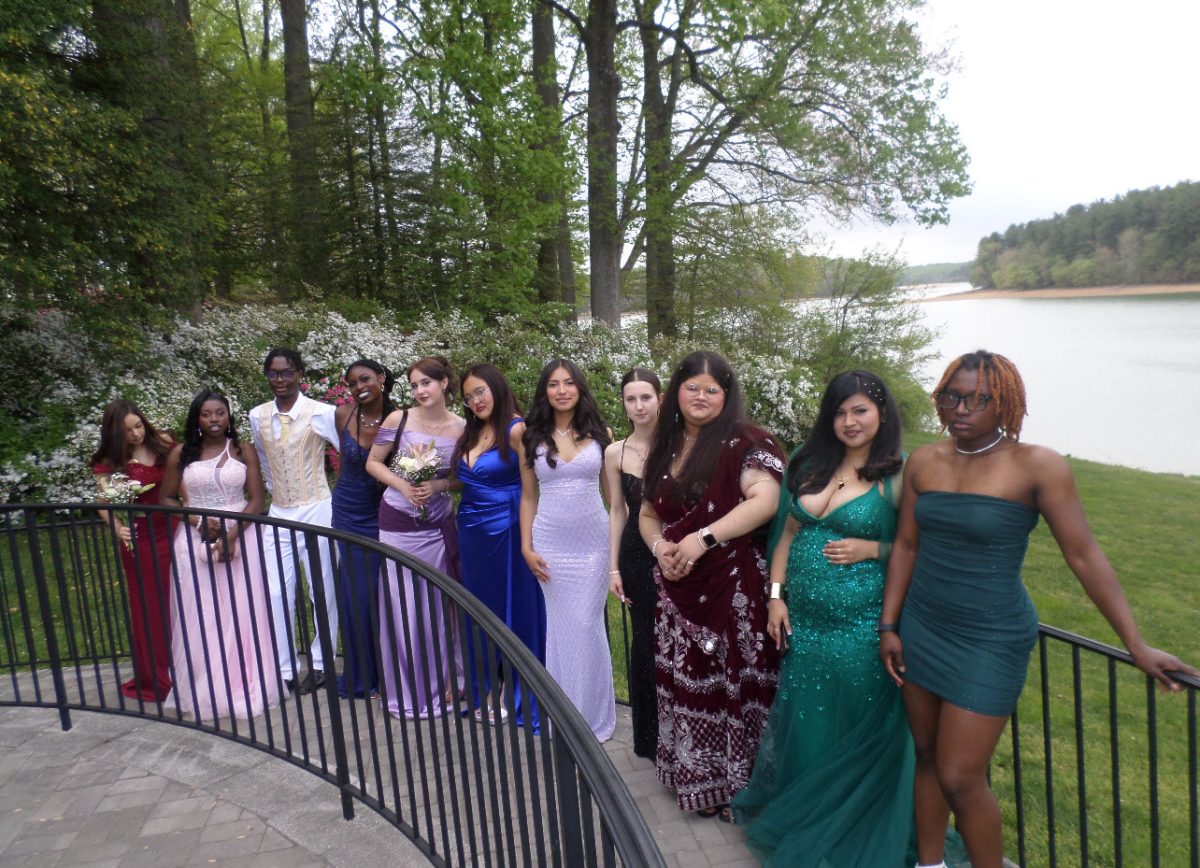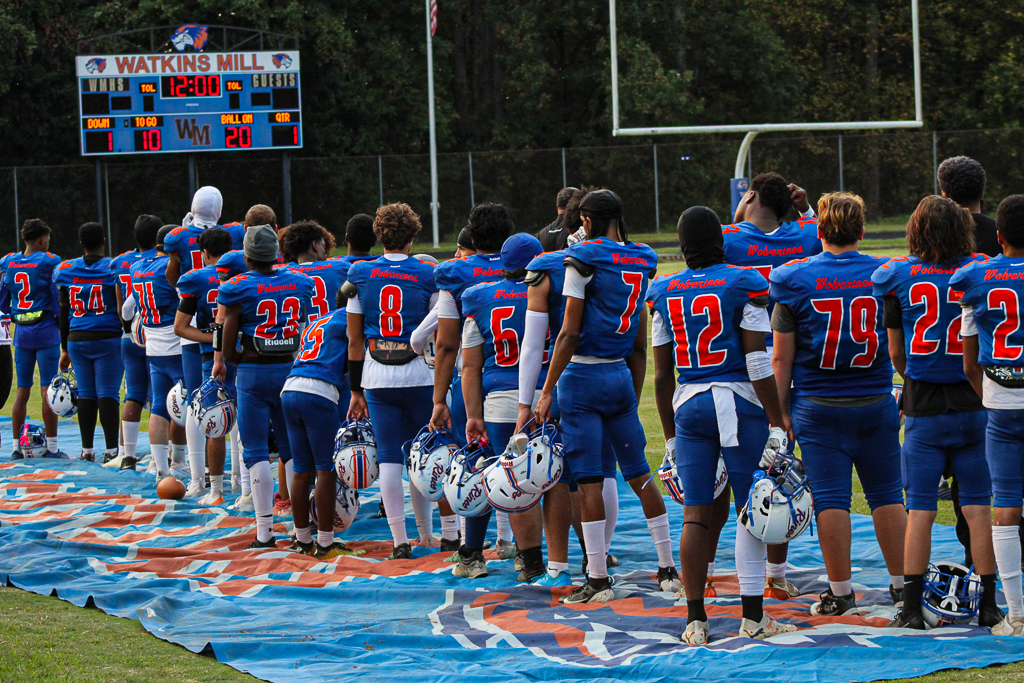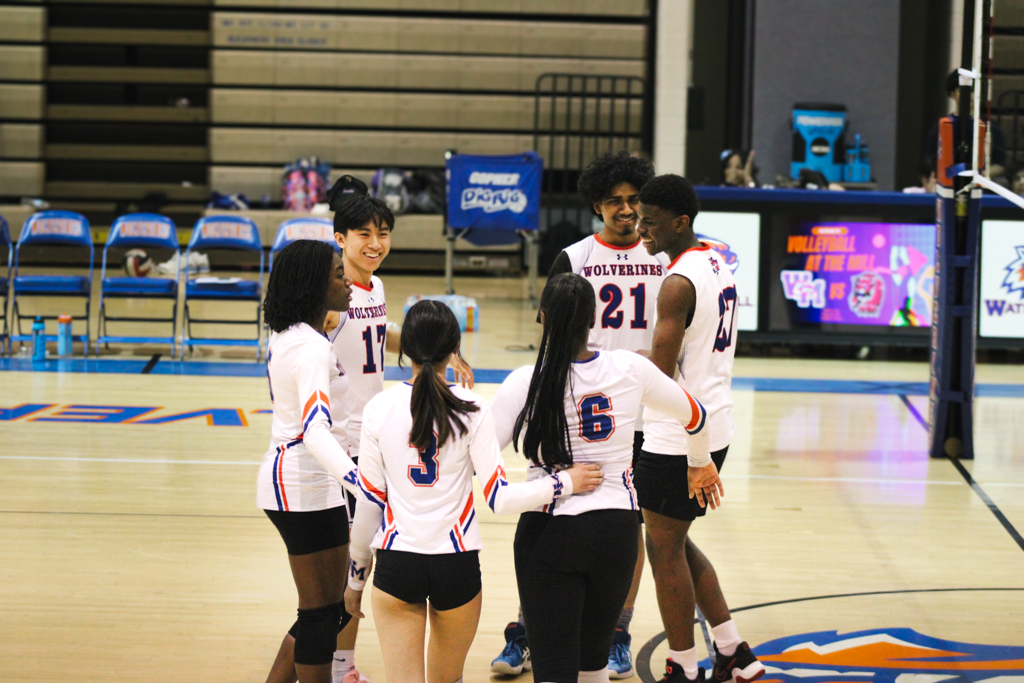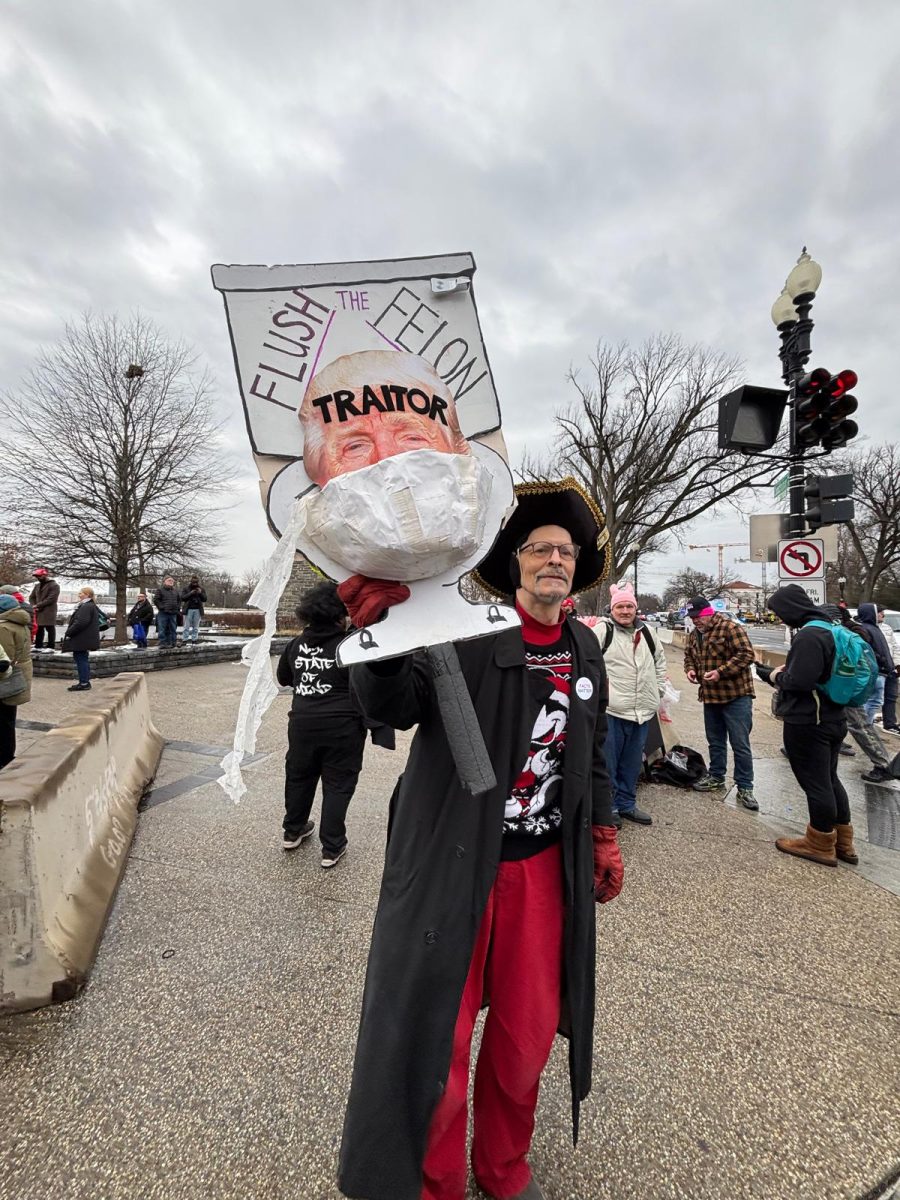Watkins Mill’s Minority Scholars Program (MSP) hosted its annual Town Hall in the O’Shea Theater on Friday, February 16, tackling the impact of representation and favoritism in the media. President Huswat Olajide and Vice President Obehi Eromosele led the preparations, ensuring a well-organized event.
Seniors Bud Soto and Wesley Diaz served as the MCs, opening the town hall with Principal Vilma Nájera’s speech on the significance of the event. The town hall comprised three subgroups, each addressing distinct media representation topics.
The first subgroup explored “Beauty standards in the media,” discussing unrealistic standards with both men and women, media favoritism towards Eurocentric features and slim bodies, lack of diversity, and the sexualization of people of color. As beauty standards shape society’s perception of beauty, MSP Vice President Obehi Eromosele said, “It’s important to recognize that beauty is not a static group of physical features. Instead, it’s a dynamic and evolving concept influenced by various factors, including digital social media.”
The next subtopic was “Sexualization and Tropes of POC in the media,” which showed the portrayal/stereotype of certain races, such as black women and the sapphire stereotype, painting them as rude, loud, stubborn, and overbearing or the Asians as smart and nerdy, prioritizing their academics over everything else, etc.
It included a case study on Olivia Pope and ended with discussions on typecasting. “The well-being of minority communities shouldn’t be sacrificed for the sake of entertainment. The entertainment industry must recognize its responsibility in shaping narratives and work to be actively inclusive, diverse, and respectful in representing all communities,” said sophomore Tracy Espinoza.
The last topic addressed was “Actors of color in non-traditional roles,” which focused on race-reversed casting (changing the race of characters in an adaptation of a movie or TV show). Examples included adaptations like Percy Jackson and the character Annabeth, The Little Mermaid’s Ariel, played by Halle Bailey, Cleopatra, and others. These emphasized the industry’s role in promoting diversity.
However, the discussion acknowledged potential drawbacks, such as online harassment of actors and feelings of directors just trying to check a diversity box. Instead, they advocated for movies where people of color take center stage with individual stories.
Concluding the event, Watkins Mill’s STEP team delivered a remarkable performance, with Olajide and Eromosele expressing gratitude. The afternoon was filled with meaningful conversations about representation issues in media.



